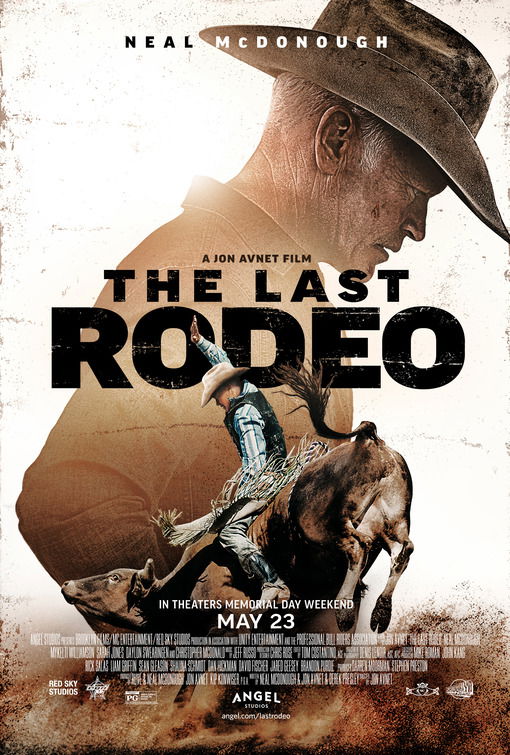By Dr. Ted Baehr and Dr. Tom Snyder
If only he would use his talent for goodness instead of evil!
That is a paraphrased comic statement that Secret Agent Maxwell Smart often used to describe some of the super-villains he faced on the TV spy show GET SMART in the 1960s. The same statement may be applied to Michael Moore, the filmmaking darling of the Left who has made another polemical documentary, CAPITALISM: A LOVE STORY, this time calling for the replacement of America’s capitalist system with a socialist system, including, of course, pro-communist proposals to share all wealth or profits equally.
A talented filmmaker, Moore begins his latest movie by discussing the post-war economic boom in the United States in the 1950s and early 60s. After showing the consumerism that captivated many Americans during those times, and the riches that came to the leaders of industry and the wealthy bankers and brokers on Wall Street, he cuts to a shot of President Jimmy Carter during the late 1970s sadly complaining about the “greed” and “materialism” of America. Then, in a mocking tone, Moore says Ronald Reagan came riding into the White House, but that Reagan and his Treasury Secretary, Donald Reagan, formerly of Merrill Lynch, designed policies that hurt blue collar workers and encouraged Americans to borrow too much money so they could buy homes and modern luxuries, while the “fatcats” on Wall Street got richer and richer.
Interspersed within this somewhat biased history lesson, Moore describes the economic “meltdown” that occurred last year. While putting all the blame on bankers, mortgage lenders and financial institutions who, he says, corrupt the politicians in Washington, Moore visits several families and workers harmed by the economic collapse. Included among these scenes are people whose mortgages have been foreclosed, a family that is defiantly still living in its foreclosed home, and workers in Chicago who took action when their company suddenly went bankrupt and refused to pay the workers what it apparently still owed them.
Finally, the movie promotes a socialist vision with a Communist polemic advocating sharing the wealth equally. During these scenes, Moore, several Catholic priests and a Catholic bishop cite Jesus Christ’s concern for the poor and needy as inspiration, while declaring unequivocally that capitalism is clearly evil and unbiblical. Moore also cites for inspiration President Franklin Delano Roosevelt’s speech calling for a “second bill of rights,” including the right to adequate healthcare, an adequate and fulfilling job, a full retirement plan, a home, and, if you own a business, a fair price for your goods and services.
The best, most coherent and perhaps most truthful part of the movie is Moore’s attack on the government bailouts for Wall Street firms like Goldman Sachs, Citicorp, the Bank of America, AIG, etc. He correctly notes that these bailouts don’t seem to have done much of anything for the people who have lost their jobs and their homes. Furthermore, he clearly shows that the government doesn’t have a clue where exactly the money went. Moreover, he shows that members of Congress are in on this and other alleged Wall Street con games, including Democratic Senator Chris Dodd of Connecticut. Of course, President Obama also seems to be fully involved in these allegedly corrupt schemes, but Moore lets the President off the hook because he apparently loves Obama soaring, but phony leftist rhetoric of radical “Hope and Change.”
The rest of Moore’s movie, however, presents a very strong, somewhat mixed pagan worldview with very strong politically correct, leftist ideology. Although Moore includes overt, positive references to Jesus Christ and the Bible, including the crucifixion, he uses these references to promote his radical, anti-capitalist, pro-socialist, and even Communist socio-political philosophy. It’s all extremely polemical and one-sided in a deceitful way that will fool many gullible people, especially many young people.
The good news is that one older liberal/leftist journalist at the screening attended by MOVIEGUIDE® admitted that he didn’t think Moore proved his point either, mainly because the movie is so one-sided. He said Moore would have done a better job if he had included, in some way, a bit of give-and-take between himself and some experts or other people who actually believe in capitalism and who are opposed to Moore’s radical socialist utopia.
To help inform and equip the public, here are some of the problems that MOVIEGUIDE® found in watching Michael Moore’s CAPITALISM: A LOVE STORY.
Problems with Michael Moore’s new movie:
1) Michael Moore’s presentation in CAPITALISM: A LOVE STORY is one sided and unduly biased because it never provides a chance for his opponents to make their own case. Thus, he never interviews economists, much less any renowned conservative or libertarian economists, who support a capitalist system. Nor does he interview Christians or Christian capitalists who disagree with the Social Gospel of Liberation Theology and the Liberation Theologians and anti-capitalist, pro-socialist Catholic theologians Moore interviews. In a court of law, both sides get to present their case completely before the jury begins its deliberations. That is not the case with every movie, especially the movies that Michael Moore has made, including this one.
2) Thus, the movie is also guilty of special pleading – it only cites facts, arguments and opinions that agree with Moore’s political ideology, economic views and theology.
3) The anti-capitalist, pro-socialist Catholic priests and bishop Moore interviews repeatedly tell him that capitalism is evil and must be eliminated. They and Moore himself refer to statements Jesus Christ made about taking care of the poor and needy. They also refer to the incident of the rich young man in Matthew 19:16-30, who Jesus advises in Verse 21, “If you want to be perfect, go, sell your possessions and give to the poor, and you will have treasure in heaven. Then come, follow me.” Of course, neither Michael Moore nor these Catholic officials mention that last sentence about following Jesus Christ. Furthermore, nowhere in this passage does Jesus turn to a government official armed or unarmed and say, “Take this man’s possessions, sell them all and give all the money to the poor.” Nor do Jesus and His disciples in this passage (or anywhere else in the New Testament documents for that matter) promote a welfare state run by governments. In fact, in most of the English translations of this passage, Jesus never actually tells the rich man to give away every single cent from the sale to the poor and needy (presumably, the rich young man was allowed to keep some of the money of the sale to pay for his personal food, clothing and shelter while he and the other disciples followed Jesus). Also, it is possible that a rich man might have poor and needy family members, so may not such family members be included in Jesus Christ’s admonition to give money to the poor? Finally, even though the rich young man walks away sad because he liked his wealth and Jesus tells his disciples, “It is hard for a rich man to enter the kingdom of heaven,” Jesus does not tell them that it is impossible. In fact, he actually says in Verse 26, “With God all things are possible.” Thus, it may be extremely hard for a rich man to enter heaven, but it is not impossible, especially if you follow God through Jesus Christ.
4) The movie assumes that all the Wall Street companies, millionaires and billionaires that the movie attacks never give away any of their personal or company profits to charity or church (their own churches or other churches and synagogues) and never use their personal profit to support members of their family who may be poor, or much less wealthy.
5) The movie also assumes that the profits of banks or financial investment firms are never used to loan money to other kinds of businesses, either new ones or old ones.
6) Moore slams the wealthiest top one percent Americans for being greedy and having too much wealth compared to the other 99 percent or the bottom 95 percent, but he doesn’t mention that, according to the most recent figures from the Internal Revenue Service reported by THE NEW YORK TIMES on July 30, 2009, the top one percent of the wealthiest Americans paid 40.42 percent of the total federal income taxes in 2007, while the bottom 95% paid only about 39 percent and the poorest Americans paid very little or nothing.1 Of course, to be fair, the wealthiest people in the United States, before the recent economic meltdown, saw their income grow much greater than the people toward the bottom, but also, many wealthy people working on Wall Street have lost billions or millions of dollars in the current recession. Even so, this argument about whether the federal tax system is fair has nothing to do with questions regarding government-run welfare and education programs, such as, Are these programs worthwhile and moral in the first place?
7) At the end of the movie, Michael Moore overtly advocates the elimination of the capitalist system, but his movie only implies that he would replace capitalism with Big Government socialist programs and business cooperatives where each worker has an equal share of the profits, but it is short on the details. For example, he doesn’t really say how the socialist programs would work, where the money would come from, or how the government would set prices for the healthcare services and houses the government would provide, or the wages and benefits that are handed out.
8) He shows President Franklin D. Roosevelt’s speech advocating a second bill of rights declaring that each citizen has the right to such things as adequate housing, an adequate job with a decent standard of living, proper healthcare (presumably through a government-run national healthcare system), and adequate provision for one’s retirement, but, again, no details are offered as to how all this could and would be achieved.
9) Though he notes that the public was generally opposed to the bailouts of the big banks, mortgage companies and financial institutions, Moore fails to note that Republican, conservative and libertarian voters were among the most vocal ones opposing the bailouts.
10) Although one of Moore’s interview subjects notes that current Treasury Secretary Timothy Geithner was the Federal Reserve official in New York whose incompetence is primarily responsible for the sudden financial meltdown on Wall Street, Moore lets President Obama off the hook for appointing Geithner because Moore thinks Obama supports Moore’s anti-capitalist, socialist ideology in some way.
11) Although Moore lambastes Goldman Sachs for its allegedly corrupt influence in Washington D.C., he again lets Obama off the hook, even though Obama has appointed former Goldman Sachs officials as part of his economic team!
12) Although Moore blasts Wall Street banks, financial institutions and mortgage companies like Citicorp, Merrill Lynch, AIG, and Bank of America, and attacks the bailouts they received, he again lets President Obama off the hook for supporting bailouts.
13) Moore fails to note that, according to many economic and public policy experts, it was actually the socialist housing policies and regulations of Democratic presidents FDR, LBJ, Carter, and Clinton, and Democratic Congressmen and senators like Rep. Barney Frank, Chris Dodd and Charles Schumer, not just the lack of action by President Bush to roll back these policies and regulations, that mainly caused the meltdown in the housing market. Thus, sound capitalistic policies and regulations, and deregulation, had little or nothing to do with the housing meltdown.
14) Moore uses anecdotal evidence of individuals in dire economic straits to create sympathy for the anti-capitalist, pro-socialist and anti-corruption viewpoint in his movie, but this kind of argument or “evidence” does not prove his point since anecdotal information is a fallacious way to prove a point because it can only serve as an example, not as part of a deductive argument using logic or an inductive argument using facts, documentation and science.
15) Moore also uses emotional arguments and appeals to pity for these suffering individuals to convince viewers of his anti-capitalist, pro-socialist viewpoint, but, here again, such irrational arguments are fallacious. An appeal to pity or emotion does not invalidate your argument, but neither does it validate it.
16) Moore claims that the United States Constitution does not establish a capitalist system but instead advocates a Democratic Socialist one. He points to the phrase “We the People,” and the phrase “to support the general welfare” to prove his point, but he forgets the commerce clause that appears later in the document and he forgets the Fifth Amendment, which supports the “right to property” and the “right to liberty.” Also, no less a person than James Madison, the fourth president who is often also called “The Father of the Constitution” said on Feb 6, 1792 in a speech before Congress that this is not what the words “general welfare” mean. In fact, Madison says that federal aid to education and the poor, and federal regulation of roads, are both unconstitutional and anti-American:
“If Congress can employ money indefinitely to the general welfare, and are the sole and supreme judges of the general welfare, they may take the care of religion into their own hands; they may appoint teachers in every State, county and parish and pay them out of their public treasury; they may take into their own hands the education of children, establishing in like manner schools throughout the Union; they may assume the provision of the poor; they may undertake the regulation of all roads other than post-roads; in short, every thing, from the highest object of state legislation down to the most minute object of police, would be thrown under the power of Congress. . . . Were the power of Congress to be established in the latitude contended for, it would subvert the very foundation, and transmute the very nature of the limited Government established by the people of America.” – James Madison, The Papers of James Madison, Vol. 14 (Charlottesville: University Press of Virginia, 1983), pages 223-224.
1. Catherine Rampell, “Top 1% Paid More in Federal Income Taxes Than Bottom 95% in ’07,” NEW YORK TIMES, July 30, 2009.
Questions or comments? Please write to us here.


 - Content:
- Content: 

